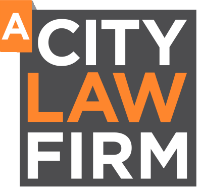
Before the COVID-19 pandemic, this is a subject that would have probably never really crossed an employer or employees’ minds. This could soon become a global debate. British business is already at the forefront, with the vaccination program well underway and amongst the most advanced in the world. Already, one in three adults has received their first vaccine shot. Furthermore, the UK government confirmed that it hopes to offer every adult a first dose of the vaccine by July 31.
Government’s Stance
The government so far has acknowledged that this choice would be “up to businesses” if they wanted workers or customers to hold coronavirus vaccination passports. But a clear stance on this is yet to be taken. There are obvious concerns over coercing people into getting the vaccine, given the legal and ethical questions that follow.
Some ministers expressed fears that such passports could lead to discrimination in the workplace against people who cannot, or will not, receive a COVID-19 jab.
Proceeding with Caution
Until further guidance is provided by the government, we expect employers will proceed with caution. Either before implementing mandatory requirements in their employment contracts or requesting proof of vaccination from existing employees. Particularly as it could leave them open to legal claims for discrimination if workers have refused jabs for medical reasons, pregnancy, disability or religious beliefs. Employers should try to be understanding and acknowledge that there are various different and complicated legitimate reasons why an employee may not wish to be vaccinated.
In addition, another pertinent question is how will employees be expected to demonstrate they have taken the vaccine? Requesting highly sensitive medical records is rarely desirable or practical for either party and creates a data protection nightmare. However, international travel amongst other things is likely to be restricted without a vaccine, so this may have an impact on certain roles regardless.
Passport technology could accelerate adoption
In January, trials began for a new COVID-19 passport technology by a biometrics company iProov and cybersecurity group Mvine, with funding of £75,000 from Innovate UK. Innovate is a government agency that funds business and research collaborations. Technology like this will make it easier to demonstrate vaccine uptake. Over the coming months discussions regarding vaccine passports will likely increase. When these innovations are used in other sectors of the economy (such as travel and hospitality) this will undoubtedly soften the conversation in respect of use in the employment sphere.
Can employers force the jab?
The simple answer is no, unless it’s in their employment contract. Any unilateral change to a contract to enforce this would be deemed an unfair dismissal. However, even if it’s in a policy or the contract this would still need to be approached very carefully to avoid any potential discrimination. For instance, asking only older employees to have this or forcing someone against their religious beliefs to take it. Then there is also the issue of what if there are severe side effects, who’s responsible?
Can employers encourage uptake indirectly?
If government regulations are introduced making it impossible to fly or attend public events without being vaccinated, this will undoubtedly assist employers in encouraging employees to take the vaccine in order to continue performing their job roles.
Employers may initially address issues relating to vaccine uptake indirectly through restricting or reducing benefits, or requiring those who are not vaccinated to undertake different roles or become home-based.
However, employers will need to proceed with caution and conduct a thorough risk assessment when implementing such policies, as this could leave employers open to claims being brought against them. Employees could challenge policies if they are deemed to be unfair or discriminatory, and could bring claims to ACAS or even take their employer to the Employment Tribunal. For example, if a claimant can prove they are exempt from having the vaccine for some valid reason or have been unable to access it, any policy that is detrimental to their employment rights or status is arguably unfair or discriminatory.
Staff could also potentially have a claim if they feel they have been treated less favourably. I.e if their salaries are reduced for example or their new role is considered a demotion or you replace them essentially making their role redundant. Again caution, advice, and transparency will be key.
Like any employment position always review the contract and policies first, speak to each other to see if an agreement is reachable and if in doubt take advice. It’s important to note that laws are constantly changing in anticipation of future needs. Therefore, make sure to stay up to date and follow the government guidelines very closely.
Disclaimer: This is a high-level overview of the legal position surrounding vaccines and in no way constitutes legal advice. If you are unsure about any legal issues surrounding the pandemic, it is essential you seek legal help.

Karen Holden is the Managing Director & Founder of A City Law Firm who practise both commercial law and litigation, having been admitted to the roll in 2005. If you require further advice or assistance, please do not hesitate to contact [email protected]
A City Law Firm Limited is a leading entrepreneurial law firm in the city of London, with a dynamic and diverse team of lawyers. It was awarded most innovative law firm, London 2016 and Business Law firm 2017. They specialise in start-up business law, the tech industry, IP and investment.

























